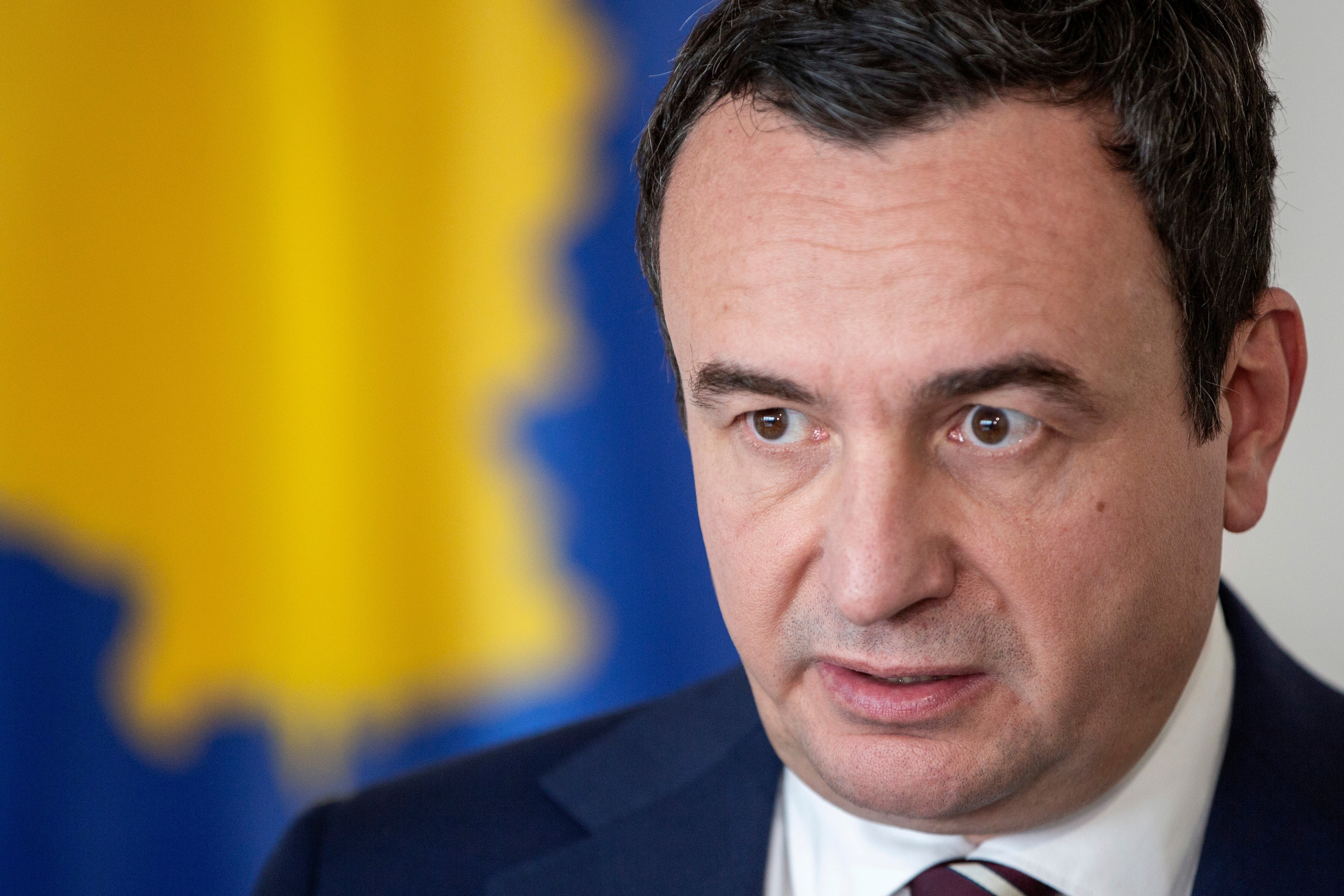EU and US envoys urge Kosovo and Serbia to resume dialogue in order to defuse tensions
The envoys of the European Union and the United States are urging Kosovo and Serbia to resume their dialogue on normalizing relations before the bitter tensions between the two nations result in more violence

Your support helps us to tell the story
From reproductive rights to climate change to Big Tech, The Independent is on the ground when the story is developing. Whether it's investigating the financials of Elon Musk's pro-Trump PAC or producing our latest documentary, 'The A Word', which shines a light on the American women fighting for reproductive rights, we know how important it is to parse out the facts from the messaging.
At such a critical moment in US history, we need reporters on the ground. Your donation allows us to keep sending journalists to speak to both sides of the story.
The Independent is trusted by Americans across the entire political spectrum. And unlike many other quality news outlets, we choose not to lock Americans out of our reporting and analysis with paywalls. We believe quality journalism should be available to everyone, paid for by those who can afford it.
Your support makes all the difference.The envoys of the European Union and the United States urged Kosovo and Serbia on Saturday to resume their dialogue on normalizing relations before the bitter tensions between the two nations result in more violence.
EU envoy Miroslav Lajcak and U.S. Special Representative to the Western Balkans Gabriel Escobar met with Prime Minister Albin Kurti in Kosovo's capital, Pristina. The visitors were accompanied by top diplomats from Germany, France and Italy, and planned to travel on to Serbia.
It was the first such engagement since about 30 Serb gunmen crossed into northern Kosovo on Sept. 24, killing a police officer and setting up barricades before launching an hours-long gun battle with Kosovo police. Three gunmen were killed.
Lajcak said that during their meeting with Kurti, the foreign officials stressed that “the terrorist attack against Kosovo police by armed individuals (that) constitutes a clear and unprecedented escalation.”
He added that the attack also "very clearly underlined that both deescalation and normalization are now more urgent than ever.”
“If there is no dialogue, there might be a repetition of escalation,” Lajcak said.
Serbia and its former province, Kosovo, have been at odds for decades. Their 1998-99 war left more than 10,000 people dead, mostly Kosovo Albanians. Kosovo unilaterally declared independence in 2008 but Belgrade has refused to recognize the move.
Both Kosovo and Serbia want to join the EU, which has told them that they first need to sort out their differences.
Western powers want Kosovo and Serbia to implement a 10-point plan put forward by the EU in February to end months of political crises. Kurti and Serbian President Aleksandar Vucic gave their approval at the time, but with some reservations.
The EU and U.S. are pressuring Kosovo to allow for the creation of an Association of the Serb-Majority Municipalities to coordinate work on education, health care, land planning and economic development in communities of northern Kosovo mostly populated by ethnic Serbs.
Pristina fears such an association would be a step toward creating a Serb mini-state with wide autonomy, similar to Republika Srpska in Bosnia.
Lajcak urged Kosovo's government “to move on the establishment of the association of Serb-majority municipalities in Kosovo without further delay.”
“Without this, there will be no progress on Kosovo’s European path,” he said.
The EU suspended funding some projects in Kosovo and halted visits by its top diplomats in July over the issue.
The last Kosovo-Serbia normalization talks took place in mid-September, before the flareup in northern Kosovo. It's unclear when another round of meetings might take place.
Kosovo has called on Europe to sanction Serbia, which it blames for the Sept. 24 violence, saying no further talks could be held and demanding higher security measures from Western powers to deter an increased presence of Serb military forces along its border.
NATO has bolstered a peacekeeping force in Kosovo, which normally has a troop strength of 4,500, with an additional 200 troops from the U.K. and more than 100 from Romania. It also sent heavier armaments to beef up the peacekeepers’ combat power.
___
Llazar Semini reported from Tirana, Albania. Follow him at https://twitter.com/lsemini